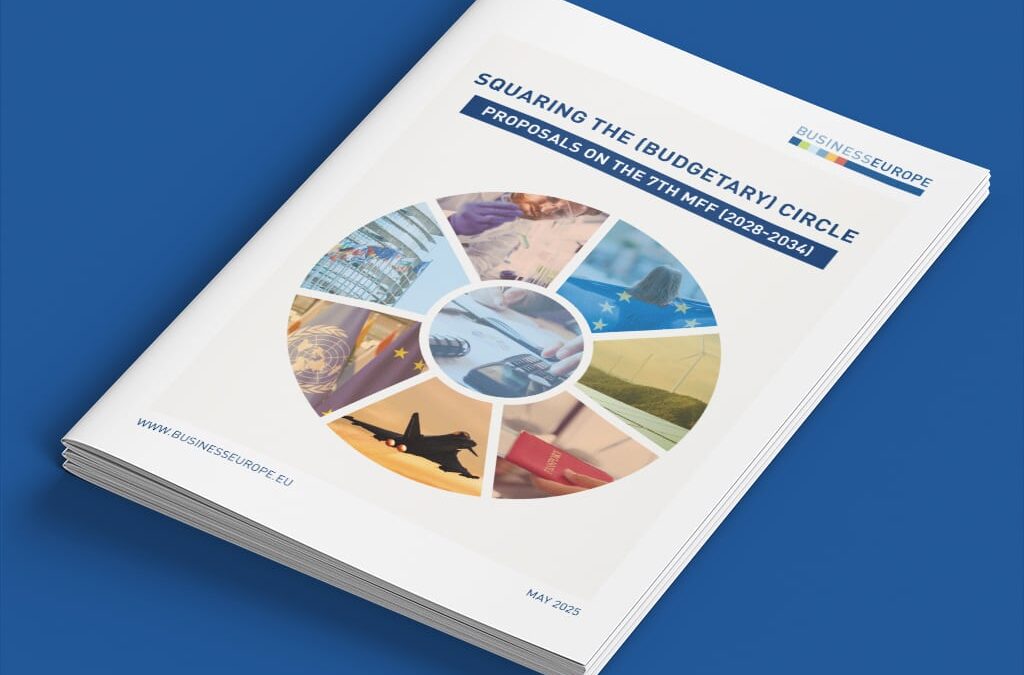BusinessEurope has outlined its recommendations for the EU’s seventh Multiannual Financial Framework (MFF) for 2028-2034, urging a decisive focus on economic competitiveness and private sector collaboration. With global challenges intensifying and the EU facing mounting fiscal pressures, the association argues that revitalising European competitiveness must be the cornerstone of the MFF.
Key proposals include simplifying access to EU funds, leveraging private investment, and prioritising growth sectors like defense, digital technologies, and energy infrastructure. BusinessEurope warns that increasing business taxation—a potential option to fund the MFF—would undermine innovation and economic activity, calling instead for private sector-driven financing mechanisms, such as public-private partnerships.
With regard to Research and Innovation, key demands include:
- EU R&I funding in the next MFF should be increased, ring-fenced and strategically aligned with industry needs, focusing on transforming knowledge into a competitive advantage.
- Application-oriented industrial research should be expanded to attract research-intensive companies.
- whether under a Competitiveness Fund or a stand-alone FP10, R&I must be a cross-cutting issue covering the entire innovation chain, with a significantly increased budget as compared to the current EU budget.
- EU R&I funding needs simpler, company-oriented rules and faster financing instruments adapted to business needs, building on the experience of the Horizon 2020 Fast Track to Innovation.
- Applied collaborative R&I (Pillar II) must remain essential and receive the same level of focus and increase in funding as the other two pillars of the current programme.
- While supporting start-ups and deep-tech is important, innovative SMEs, mid-caps and large firms are also key R&I players that must have access to simpler, bottom-up funding mechanisms focused on market impact.

